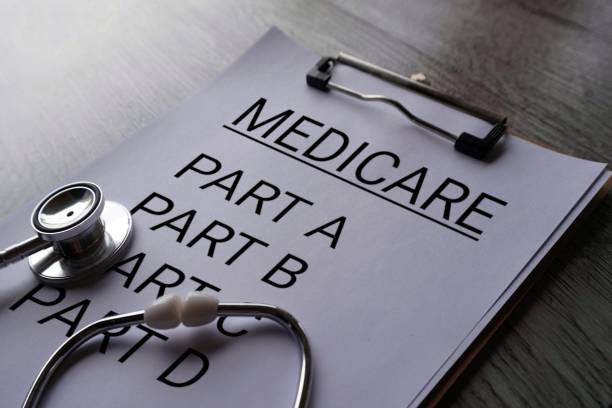Insurance
How Health Insurance Can Cover Hearing Aids
Are you wondering if your health insurance will cover the cost of hearing aids? You are not alone. Many patients with hearing loss are unsure whether their insurance would cover this vital device. In this article, we will discuss health insurance coverage for hearing aids and give you with useful information to assist you negotiate this complex subject.
Understanding Health Insurance Coverage for Hearing Aids
When it comes to health insurance coverage, the answer varies based on your unique policy. Some insurance companies cover hearing aids, while others limit or prohibit them entirely. It is critical to study your policy documentation or call your insurance company to learn more about your individual coverage.
Hearing aids are medical equipment that can dramatically improve the quality of life for people who have lost their hearing. However, they can be rather expensive, costing anywhere from a few hundred to several thousand dollars per gadget. This cost can be prohibitive for many persons seeking treatment for their hearing loss.

Types of Health Insurance Plans That May Cover Hearing Aids
If you have health insurance, there are various plans that may include coverage for hearing aid. This includes:
- Employer-sponsored health insurance: Many workplaces provide health insurance plans that cover hearing aids. These policies may offer full or partial coverage, depending on the policy. It is critical to evaluate your employer’s insurance policy to see if hearing aid are covered and what the coverage limit is, if any.
- Medicare: Original Medicare does not usually cover the cost of hearing aids. However, some Medicare Advantage plans (Part C) may include coverage for hearing aids and related services. Check with your plan provider to determine if hearing aids are covered and what the qualifying conditions are.
- Medicaid: The coverage for hearing aids varies by state. Some states provide full coverage for hearing aids, while others may impose restrictions or limitations. If you have Medicaid, you should check with your state’s Medicaid program to learn about the coverage alternatives available to you.
- Individual health insurance plans: Individual health insurance plans may include coverage for hearing aids as an optional benefit. These plans may have additional premiums or eligibility requirements. To determine whether hearing aid are covered by your plan, you should review the policy documentation or contact the insurance provider directly.
Coverage Limitations and Requirements for Hearing Aids
While some health insurance plans do cover hearing aid, it’s essential to understand that there may be limitations and requirements for coverage. These limitations can include:
- Age restrictions: Certain insurance plans may only cover hearing aids for specified age groups. For example, coverage could be restricted to minors or anyone above a certain age.
- Medical necessity: Many health insurance policies demand a medical necessity for coverage. This means you may be required to show paperwork from a healthcare practitioner indicating that hearing aids are medically necessary for your condition.
- Coverage limits: Some insurance plans may limit the amount they will pay for hearing aids. For example, they could pay a set dollar amount or a percentage of the entire cost.
- Out-of-pocket expenses: Even if your insurance plan covers hearing aids, you may still incur out-of-pocket costs such as deductibles, co-pays, or coinsurance.
It’s important to review your insurance policy or contact your insurance provider to understand the specific limitations and requirements for hearing aid coverage.

How to Check If Your Health Insurance Covers Hearing Aids
To determine if your health insurance covers hearing aids, follow these steps:
- Review your policy documents: Start by reviewing your insurance policy documents. Look for information on coverage for durable medical equipment or assistive devices. If you don’t have a physical copy of your policy, you can usually access it online through your insurance provider’s website.
- Contact your insurance provider: If you’re unable to find the information you need in your policy documents, reach out to your insurance provider directly. Call the customer service number provided on your insurance card and ask about coverage for hearing aids. Be prepared to provide your policy details and any other necessary information.
- Ask for a pre-authorization: If your insurance does cover hearing aids, ask your healthcare provider to submit a pre-authorization request to your insurance company. This will help ensure that the cost of the hearing aids is covered before you make a purchase.
- Document everything: Throughout the process, keep detailed records of your conversations with your insurance provider, including the date, time, and the name of the representative you spoke with. This documentation can be helpful if you encounter any issues or disputes regarding your coverage.
Alternative Options for Financing Hearing Aids
If your health insurance doesn’t cover the cost of hearing aids or if you have significant out-of-pocket expenses, there are alternative options available to help finance your hearing aids:
- Hearing aid financing programs: Some hearing aid manufacturers and providers provide financing plans that allow you to pay for hearing aids over time. These programs typically have low or no interest rates, making the expense more manageable.
- Flexible spending accounts (FSAs) and health savings accounts (HSAs): If your workplace offers an FSA or HSA, you can use these funds to pay for hearing aids. These accounts allow you to save pre-tax cash for eligible medical expenses.
- philanthropic groups: Several philanthropic organizations offer financial support with hearing aids. These organizations may have special eligibility requirements, so do your homework and contact them directly to learn more about their programs.
- State help programs: Some states offer financial support for hearing aids. These programs may be based on income or need certain eligibility criteria. To learn more about such programs, contact your state’s health or human services agency.

Tips for Maximizing Your Health Insurance Coverage for Hearing Aids
If your health insurance does cover the cost of hearing aids, there are several tips you can follow to maximize your coverage:
- Understand your benefits: Review your insurance policy to understand the specific coverage details for hearing aids. This includes any limitations, requirements, or out-of-pocket expenses you may be responsible for.
- In-network providers: Visit healthcare providers and audiologists who are in-network with your insurance plan. This can help minimize your out-of-pocket expenses and ensure that you receive the maximum coverage allowed.
- Get multiple quotes: Before purchasing hearing aids, obtain quotes from multiple providers. This can help you compare prices and ensure that you’re getting the best value for your coverage.
- Keep up with maintenance: Proper maintenance and care of your hearing aids can help prolong their lifespan. This can help you avoid the need for frequent replacements, which can be costly even with insurance coverage.
- Utilize follow-up services: Some insurance plans may cover follow-up services, such as adjustments or repairs to your hearing aids. Take advantage of these services to ensure that your devices are functioning optimally.
Common Misconceptions About Health Insurance Coverage for Hearing Aids
There are several common misconceptions about health insurance coverage for hearing aids. It’s important to separate fact from fiction to make informed decisions regarding your coverage:
- All health insurance plans cover hearing aids: All health insurance plans cover hearing aids. This is not correct. While some insurance plans include hearing aids, others may limit coverage or ban them entirely. It is critical to study your policy documentation or contact your insurance provider to determine your precise coverage.
- Medicare covers hearing aids: Original Medicare does not usually cover the cost of hearing aids. However, some Medicare Advantage plans (Part C) may include coverage. It is critical to verify with your plan provider to determine whether hearing aids are covered.
- Medicaid covers hearing aids in all states: Medicaid covers hearing aids in all states. Medicaid coverage for hearing aids varies by state. Some states offer extensive coverage, whilst others may impose restrictions or limitations. Check with your state’s Medicaid program to learn about your coverage possibilities.
Resources and Organizations That Can Help With Hearing Aid Costs
If you need assistance with the cost of hearing aids, there are several resources and organizations that can help:
- Hearing Loss Association of America (HLAA): The HLAA provides information and resources for individuals with hearing loss. They also offer financial assistance programs for hearing aids.
- Lions Clubs International: Lions Clubs International operates hearing aid recycling programs and provides financial assistance for hearing aids to those in need.
- Starkey Hearing Foundation: The Starkey Hearing Foundation provides hearing aids to individuals in need around the world. They also offer financial assistance programs for those who cannot afford hearing aids.
- Your state’s department of health or human services: Contact your state’s department of health or human services to inquire about available programs and resources for hearing aid assistance.
Remember to research and contact these organizations directly to learn more about their programs and eligibility criteria.
Conclusion
Finally, health insurance coverage for hearing aids varies based on your unique insurance plan. Some plans may provide coverage for hearing aids, while others may limit or exclude it. It is critical to study your policy documentation or contact your insurance company for more information.
If your insurance does not cover the cost of hearing aids or you have a large out-of-pocket payment, there are other choices available, such as financing programs, FSAs or HSAs, and charitable organizations.
Understanding your insurance coverage, researching alternative choices, and utilizing available resources will help you manage the difficult problem of health insurance coverage for hearing aid and ensure that you receive the care you require. Don’t let the cost of hearing aids prevent you from enhancing your quality of life; instead, look into your options and take control of your hearing health.
Trusted Health, Wellness, and Medical advice for your well-being


